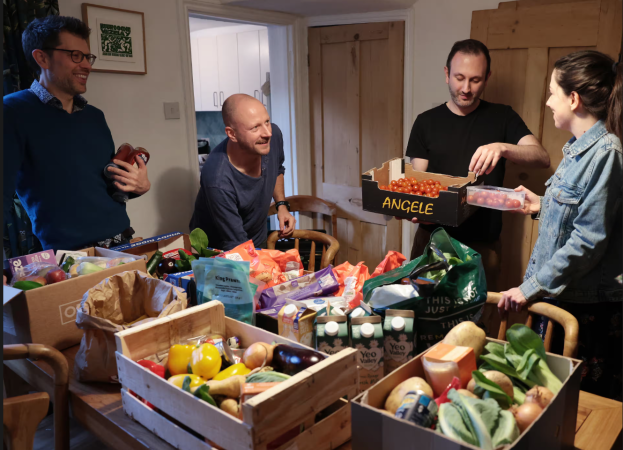Can a Food Co-op Really Help Cut Grocery Costs by 40%? I Gave It a Go With My Neighbors
Many people would love to save up to 40% or more on their weekly groceries. But would they still be interested if it meant giving up some convenience and instead working together with neighbors?
That’s exactly what I explored after hearing about Cooperation Town, a non-profit that started in Kentish Town, London in 2019. The idea is simple: instead of relying on charity, small local food co-ops work together to buy in bulk or get surplus food donations, saving members money. With just a weekly contribution of £3–£6 per person, these co-ops can make their money go much further.
Wanting to try it myself, I reached out to Shiri Shalmy, one of the founders. She explained that co-ops don’t guarantee everyone gets exactly what they want, but they can provide all the essentials—rice, pasta, and fresh fruit and vegetables. Specialty items, like a certain dessert, can still be bought separately.
Setting up the co-op took a bit of effort at first. I spent a couple of weeks knocking on neighbors’ doors, handing out flyers, and posting in a local WhatsApp group. Soon, I had a group of 13 interested people. We held meetings to discuss what food we usually buy and used a shared spreadsheet to find common items.
Cooperation Town offers helpful online resources, including sample meeting agendas, shopping lists, and a starter pack for new co-ops. While meetings were sometimes tricky to schedule, we worked around it by dividing into smaller groups and sharing notes.
In the end, we decided to focus mostly on fresh produce rather than pantry items like rice, which turned out to be not much cheaper when bought in bulk. We placed our first order through Cooperation Town, each contributing £5.64. What we received was beyond our expectations: boxes of seasonal veg like pak choi, cauliflowers, potatoes, and parsnips—plus extras like hummus, cheese, prawns, cakes, and other goods from surplus food donations by groups like the Felix Project.
All this added up to over £40 worth of food per household—an impressive return on our small contribution. We were lucky to have a driver in the group, saving us an additional £10 delivery fee.
The main takeaway? Working together with neighbors can really pay off. While it does take time and trust to set up a co-op, it’s a huge help—especially during tough times when grocery costs keep rising. As Shiri put it, the biggest barrier isn’t time or money—it’s the mindset. People just aren’t used to working together anymore.
Tips for Starting a Food Co-Op:
- Talk to neighbors and friends—door-to-door really works.
- Find a place for meetings (homes, halls, or video calls).
- Keep the group small and manageable.
- Use spreadsheets to track shared food preferences.
- Divide responsibilities so no one is overwhelmed.
- Collect weekly contributions (cash or digital apps).
- Ask local stores for surplus food and contact wholesalers.
- Choose a central place for order pick-up.

